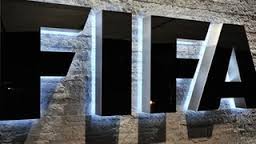By Andrew Warshaw in Zurich
July 20 – Just under two months after the bombshell that fell on FIFA, its top brass on Monday choose a date to replace Sepp Blatter as president – and also to finally discuss concrete reform ideas which the veteran Swiss is determined to help firm up before he steps down.
The session of FIFA’s new-look executive committee is the first since seven key officials were arrested on corruption charges on the eve of the election in May which saw Blatter re-elected before announcing four days later he was ending his mandate.
A second, separate criminal investigation into FIFA was also launched at the same time as Swiss prosecutors moved in to probe the bidding process for the 2018 and 2022 World Cups, won by Russia and Qatar respectively.
The primary task of today’s meeting is to choose a date for an extraordinary congress to bring all 209 member nations back to Zurich to elect a new president. UEFA are pushing for mid-December but ideally want Blatter to agree to end his 17 years in charge sooner. It is even being mooted that he will be asked to go straight away.
That is unlikely to happen, one argument being it could actually make matters worse in terms of a smooth transition. Blatter, who has never once used the word resign and who has been giving a number of bullish newspaper interviews defending his reputation, is believed to be in favour of staying in charge until early in the New Year. One suggestion is that since many delegates will be in Zurich for the Ballon d’Or ceremony on January 12, that could be an ideal election time. March is the absolute deadline for choosing his successor.
Whenever Blatter goes, his number two Jerome Valcke is expected to follow suit, opening up not just the presidency but also the position of secretary general. At one point Blatter was reported to be considering standing again but that was quickly nipped in the bud when Domenico Scala, the independent chairman of FIFA’s audit and compliance committee, urged him to stick by his original decision and not stage another u-turn.
At least one exco member will be absent from Monday’s meeting, immediately after which Blatter will face the international media for the first time since the dramatic aftermath of his re-election.
Marco Polo Del Nero, president of the Brazilian FA, has apparently made his excuses citing urgent priorities back home. He was the man who unexpectedly flew out of Zurich one day after the arrest of those seven football and marketing officials who included his predecessor Jose Maria Marin.
Although the extraordinary congress date is the main business, “reform of FIFA’s organisational structure” is also on the agenda. In other words, change.
Blatter wants to devote his last few months to leaving FIFA with his credibility enhanced and has been working alongside Scala, who is responsible for organising the election and nominations process and is understood to favour three candidates as the ideal number. Some have suggested that Scala himself might run but this is untrue.
Top of the list of reform ideas is term limits, which have long been a major sticking point, while Insideworldfootball understands that disclosure of salaries is also on the table as is making future World Cup ballots an open process rather than in secret. Integrity checks for all high-ranking officials is also slated for discussion. But Blatter’s wish for the exco to be increased in size is understood to be directly opposed by other members of his administration who want a smaller body, according to senior insiders.
It is more than possible, according to these same sources, than none of the reforms – which have to be approved by Congress – will see the light of day until well after Blatter leaves, with the majority of the exco – and whoever replaces Blatter – quite feasibly taking the view that the man who presided over such a tarnished organisation of late should not be given the chance to take the credit for its credibility being restored.
They could justifiably point to the fact that roughly half of the membership of the exco who voted in Russia and Qatar for the 2018 and 2022 World Cups have since been swept aside, many of them as a result of the avalanche of corruption cases that have taken place under Blatter’s watch.
Contact the writer of this story at moc.l1744766655labto1744766655ofdlr1744766655owedi1744766655sni@w1744766655ahsra1744766655w.wer1744766655dna1744766655

